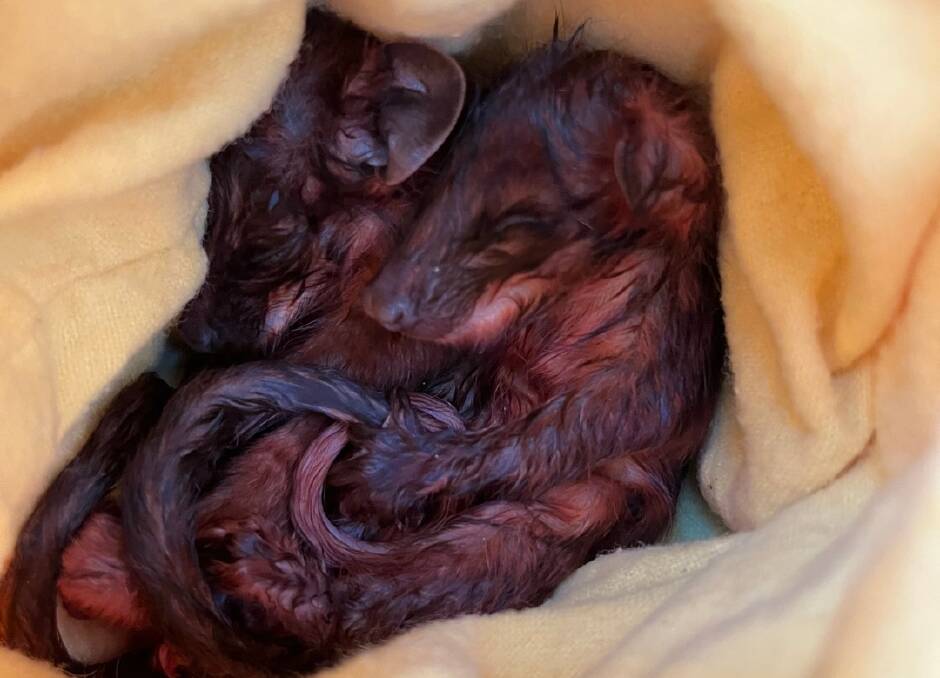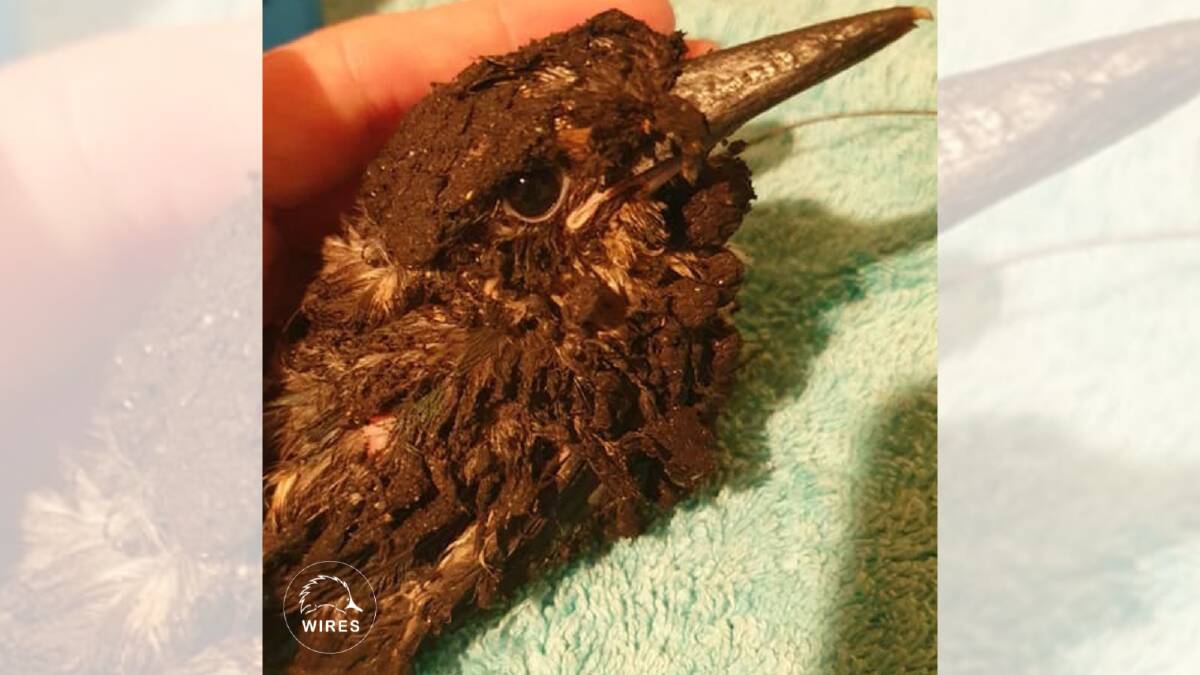Native animals are being left stranded as the flood emergency continues.
Subscribe now for unlimited access.
or signup to continue reading
Wombats, koalas, possums, snakes and birds have been rescued by wildlife group WIRES in recent months, with some animals seeking shelter from the big wet in people's homes.
In Forbes, NSW, where residents have been evacuated twice in two weeks by floodwaters, a snake was seen taking shelter inside a home this week.
Recently in the Riverina, WIRES rescuers were called in after a koala was spotted clinging to a gum tree just above rising floodwaters.

"If worse comes to worse they can swim," WIRES spokesman John Grant said.
Call outs to the group's volunteer rescuers have jumped by 20 per cent this year thanks to the floods, and some of those have been to drowned possums and koalas.
As floodwaters rise or burrows fill with water, native animals flee and can take shelter in people's homes or move onto roads.
IN OTHER NEWS
"Most of our calls are not a direct result of the floods, it's that they get displaced," Mr Grant said.
Dubbo, in the NSW Central West, has seen a spike in snake sightings since the city has been flooded.
Earlier this year an inquisitive and gentle baby koala was found walking on the ground alone and crying for its mother in torrential rainfall near Ballina.
WIRES has been alerted to groups of kangaroos left trapped by floodwaters.
"You can't rescue a mob of kangaroos on a patch of dry land," Mr Grant said.
"The best thing people can do is stay away. If you go close the first thing the kangaroos will do is scatter, because their fear of you is stronger than their fear of the water."
Most native animals can swim if they need to, and Mr Grant urged people to give the animals space, if possible, to escape floodwaters.
The best thing people can do is stay away. If you go close the first thing the kangaroos will do is scatter, because their fear of you is stronger than their fear of the water.
- WIRES spokesman John Grant
"You're going to see animals in unusual places, but as soon as everything dries off they'll go," he said.
If you have a snake in your home that's escaped floodwaters, the advice is simple - don't touch them, he said.
"Most people get bitten when they go near it, or try to pick it up, or try to kill it," Mr Grant said.
"If you see a snake close it into that room and if possible keep children and pets away. Put a towel at the bottom of the door and call council or a wildlife rescue place."
Snakes are protected and it is against the law to kill them.
How to help wildlife during flood emergencies

Flooding, strong winds and heavy rain can result in stress and shock for wildlife.
Birds can become waterlogged and unable to fly, and possums and gliders may be found under trees after heavy rain.
If you find an injured turtle, call a vet. If the turtle is uninjured, but you are unsure whether you've found a freshwater or marine turtle, call WIRES on 1300 094 737 to confirm before releasing it.
Bats and flying foxes have been seeking refuge under verandas, house eaves and in open sheds. Do not handle or attempt to rescue it, and call your local wildlife rescue group and a vaccinated volunteer will rescue the bat.
Top Tips:
- Keep a cardboard box, gloves, mask, a cotton pillowcase and a few towel in the boot of your car in case you find an injured animal that you can safely contain without putting yourself in any danger.
- If you rescue an animal, do not attempt to feed it and do not offer water unless instructed to by a trained wildlife carer or vet.
- Wrap the rescued animal loosely, ideally in 100 per cent cotton fabric or a cotton pillowcase with no loose threads. Place it in a ventilated box with a lid and keep it in a dark, quiet place while waiting for a rescuer or for transport to the nearest vet.
- Do not handle the wild animal once you have contained it.
- Keep rescued wildlife well away from all domestic pets and children.
- If you can, safely take the injured animal to your nearest vet.
- Do not approach snakes, flying foxes, large kangaroos, raptors or monitors as these must be rescued by trained specialists. Call your council or local wildlife rescue group.
- Do not risk your life to rescue an animal. Do not drive through or enter floodwaters.


